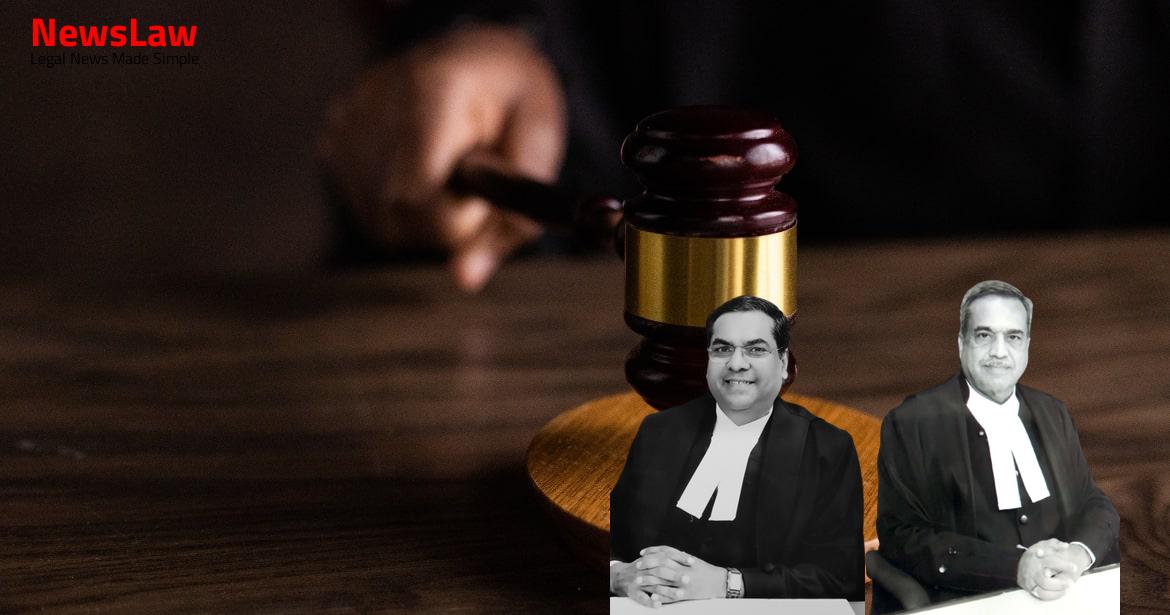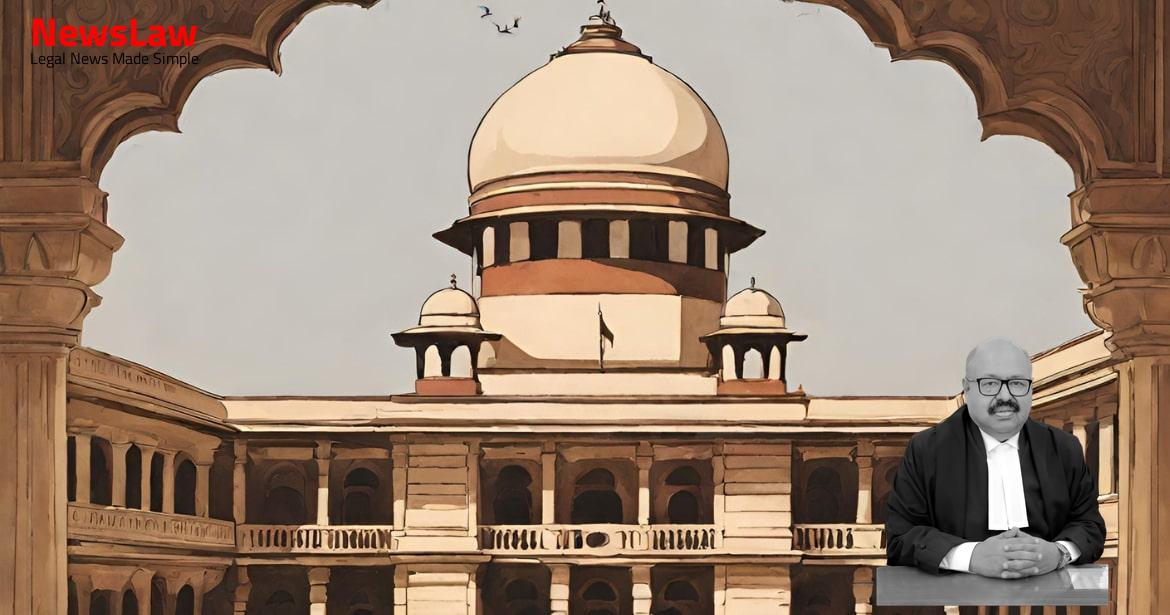In a significant legal development, the Supreme Court of India has pronounced its verdict in the case involving Udiya and the State of Madhya Pradesh. The judgement sheds light on a crucial legal battle that has captivated the nation’s attention. Stay tuned for a detailed analysis of the court’s decision and its implications on the Indian legal landscape.
Facts
- The High Court of Madhya Pradesh upheld the conviction of the appellant Udiya under Section 302 of the IPC for the murder of his brother Nakuda.
- The appellant was sentenced to life imprisonment and a fine of Rs. 1,000/- for the crime.
- The testimony of Jeevni (PW-1), the wife of the deceased Nakuda and sister-in-law of the appellant, was crucial in confirming the appellant’s guilt as an eye-witness.
- The conviction was based on the strong evidence presented by Jeevni, who witnessed the incident.
- PW-1 Jeevni lodged the police report Exhibit P/1.
- Villagers gathered at the place of incident following the assault on Nakuda.
- Jeevni witnessed the appellant assaulting Nakuda with a stone.
- Nakuda confided in Jeevni that the appellant attacked him with a stone.
- Jeevni took Laxman to the scene of the incident after being informed.
- On July 10, 1999, at around 10.00 p.m., Jeevni heard her husband’s distress while he was returning home from work.
Also Read: Compassionate Appointment Case: Supreme Court’s Landmark Ruling
Analysis
- The case involves a sudden fight between two brothers, where the appellant hit the deceased with a stone.
- Witnesses Jeevni (PW-1) and Laxman (PW-4) testified about the fight and the appellant’s actions.
- There was no evidence of past enmity between the brothers.
- Medical evidence showed that the deceased died from head injuries.
- The court considers the case under Exception 4 of Section 300 IPC, as it was not premeditated and lacked a motive.
- The deceased was able to speak after the incident, indicating there was no prior intent to kill.
- The court doubts the rib injuries were fatal as they could have been from falling down.
- The appellant fled the scene after being informed that the deceased had died, implying lack of awareness of the severity of the injuries.
- Due to insufficient evidence of a deliberate killing, the nature of the offense and the potential punishment will be further examined.
- The appellant’s conviction under Section 302 IPC was converted to Part-I of Section 304 IPC
- The conversion was made to indicate intention of causing bodily injury sufficient to cause death in the ordinary course of nature
Also Read: Tokas v. Insurance Company: Multiplier Application and Compensation Enhancement
Decision
- The sentence for the appellant’s offence committed in 1999 is being modified to one month of rigorous imprisonment in lieu of a fine
- The appeals are partly allowed based on the aforementioned terms
- The appellant has already served over six years of rigorous imprisonment before being released on bail in November 30, 2009
Also Read: Land Vesting in State Government: Exemption Denial Case
Case Title: UDIA Vs. THE STATE OF MADHYA PRADESH
Case Number: Crl.A. No.-002267-002268 / 2009



